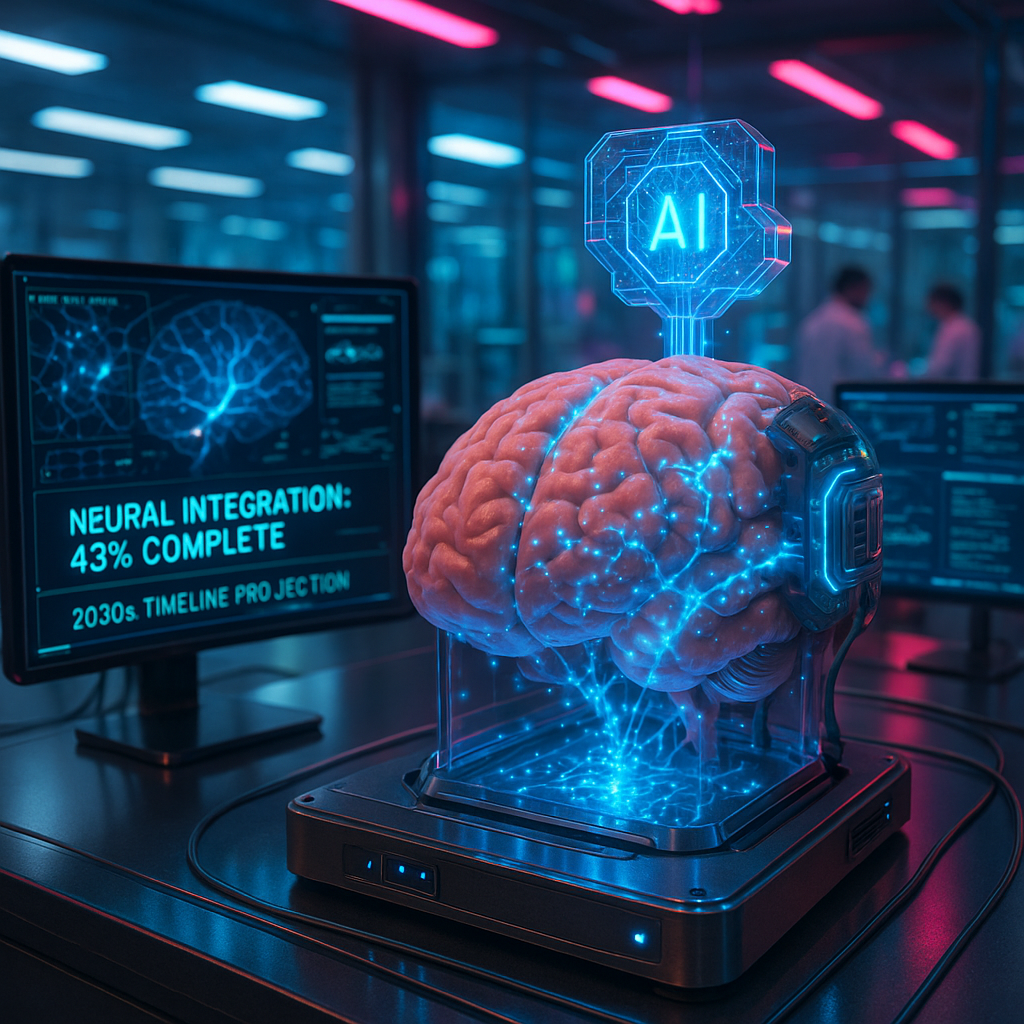Key Takeaways
- Top story: Ray Kurzweil projects that nanobot-enabled brain-AI integration could become a reality by the 2030s. He outlines a provocative future for humanity’s evolving relationship with technology.
- Stanford’s AI Index survey indicates that most workers report sustained job security even as AI drives significant productivity gains.
- Harvard: Philosophers and technologists at Harvard are examining whether AI’s promise of longer life brings greater contentment or merely longevity without increased happiness.
- Campus innovation: USC students have introduced AI assistants to assist with job searching and travel planning, highlighting AI’s role in everyday decision-making and personal autonomy.
- Beyond headline achievements, this review reveals how “AI and society” prompts dialogue about meaning, agency, and what it means to be alive in an era shaped by artificial intelligence.
Below is a comprehensive review of today’s developments and the ideas guiding future conversations.
Introduction
On 10 October 2025, Ray Kurzweil renewed his forecast that the human brain and AI could merge via nanobots by the 2030s. He envisions a future where the boundaries between human thought and machine intelligence may blur. As Stanford’s AI Index shows continued worker security despite rising AI-driven productivity, today’s review examines how AI and society together challenge notions of agency, meaning, and the human experience.
Top Story. Kurzweil Predicts Brain-AI Merger Timeline
Landmark Prediction
Ray Kurzweil, Google’s Director of Engineering, presented an updated timeline for human-AI neural integration during his keynote at the Stanford Future of Intelligence Symposium. Kurzweil stated that functional brain-computer interfaces could achieve widespread adoption by 2035, moving his estimate a decade earlier due to recent advancements.
He cited breakthroughs in neural mapping and quantum computing at leading research institutions as key factors. Kurzweil referenced preliminary successes with non-invasive neural interfaces at MIT’s Media Lab and significant work on neuroplasticity at the Allen Institute.
Stay Sharp. Stay Ahead.
Join our Telegram Channel for exclusive content, real insights,
engage with us and other members and get access to
insider updates, early news and top insights.
 Join the Channel
Join the Channel
This announcement has sparked considerable debate within the scientific community regarding the ethical and philosophical implications of direct human-AI cognitive fusion. Bioethicists from Oxford and Harvard have called for clear governance frameworks before this technology becomes broadly accessible.
Also Today. AI Education
UNESCO AI Curriculum Initiative
UNESCO has launched a comprehensive artificial intelligence education framework designed for primary and secondary schools globally. The curriculum promotes hands-on learning and emphasizes critical thinking about AI’s impact on society.
Education ministers from 45 countries have already agreed to incorporate parts of the curriculum by autumn 2026. The framework seeks to balance technical skills with humanities perspectives on artificial intelligence.
Academic AI Access Program
Major technology companies have announced a collaborative project to provide universities with greater access to advanced AI models for research. The program will initially support 200 institutions across 50 countries.
The consortium emphasizes research on AI’s effects on creativity, social relationships, and cultural expression. Participating universities are required to ensure transparent practices and maintain regular public engagement.
Also Today. Ethics & Governance
Global AI Safety Summit Outcomes
Delegates from 32 countries signed a joint declaration on AI safety standards at the Geneva Summit, establishing shared principles for responsible AI development. The agreement launched a new international oversight body to monitor high-impact AI systems.
The declaration specifically addresses concerns about autonomous decision-making and its effect on human agency. Signatories have committed to quarterly progress reviews and public consultations.
What to Watch. Key Dates and Events
- World AI Conference, Singapore: 15-17 October 2025
- EU AI Act Implementation Deadline: 1 November 2025
- Congressional AI Oversight Hearings: 20 October 2025
- UNESCO Global AI Education Forum: 25 October 2025
- AI Ethics Council Inaugural Meeting: 30 October 2025
Conclusion
Kurzweil’s updated forecast for brain-AI integration signals a critical juncture where bold vision aligns with accelerating technical progress. This is heightening both optimism and ethical debate within the AI and society discussion. Recent moves on global safety, education, and access highlight that effective governance and societal preparedness are now essential components of innovation. What to watch: regulatory developments and key international forums from mid-October to early November are likely to shape the next benchmarks in the evolving relationship between artificial intelligence and society.





Leave a Reply